Looking to learn a little more about modern agriculture or food production? Here are a few recommendations of books and movies that support and promote science-based facts.
Movie recommendations
Ivy League Farmer

After graduating from Harvard and landing his dream job on Wall Street, 23-year-old Joel Gilbert returns to the heartland to spend one final summer at home on his family’s dairy farm. While there, he quickly learns that the three-generation family farm is in trouble. Using the skills he gained with his Ivy League degree, Joel is now faced with the difficult task of confronting his strong-willed father and convincing the proud man to take the ultimate risk to save the farm. Joel also has another unexpected problem – he’s falling in love with the girl of his dreams in the small town in which he grew up.
Contact in**@**************ce.org for a copy of the film, which was provided by a donation from Diamond V.
Farmland
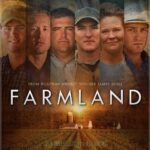
Most Americans have never stepped foot on a farm or ranch or even talked to the people who grow and raise the food we eat. Farmland will take an intimate look at the lives of farmers and ranchers in their ‘20s, all of whom are now responsible for running their farming business.
Through this film from award-winning director James Moll, you’ll step inside the world of farming for a first-hand glimpse into the lives of young farmers and ranchers. Learn about their high-risk/high-reward jobs and passion for a way of life that has been passed down from generation to generation, yet continues to evolve.
License to Farm
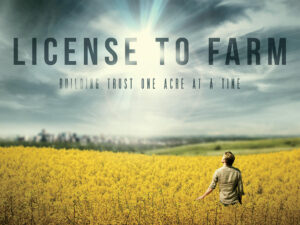
Canada is a world leader in agriculture and food production. But farming doesn’t look the same as it did a hundred, fifty, or even ten years ago. Farmers are producing more with less, using more efficient and sustainable practices than ever before. So why do consumers carry so much doubt around the way their food is produced? When did fear begin to trump science and fact when it comes to food production – and how do we earn back that valuable consumer confidence?
It is crucial for agriculture – particularly farmers – to take a seat at the table when it comes to conversations about food. Farmers can play a crucial role by engaging in meaningful conversations, opening the doors to their livelihood and building trust with their communities.
This powerful documentary explores the truth behind common misconceptions of agriculture production in Canada, while empowering farmers to stand up and advocate for their social license to farm.
Maryland Farm & Harvest
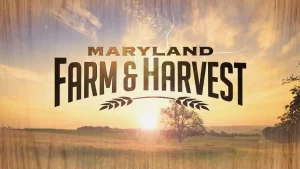
Maryland Public Television presents a series that puts a human face on farming, educates viewers about agriculture, and tells the stories of the industry that built this nation and continues to feed the world.
Maryland Farm & Harvest takes viewers around the state to see and experience what it’s like to run a 21st century farm – from technological advances and conservation challenges to age-old complications such as weather hardships. Maryland Farm & Harvest also captures the number one reason why planters and growers dedicate themselves to it all: their love of farming.
Watch it here.
Food Evolution
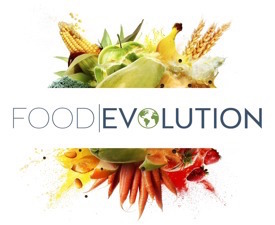
Amidst a brutally polarized debate marked by passion, suspicion and confusion, Food Evolution, by Academy Award-nominated director Scott Hamilton Kennedy, explores the controversy surrounding GMOs and food. Traveling from Hawaiian papaya groves, to banana farms in Uganda to the cornfields of Iowa, the film, narrated by esteemed science communicator Neil deGrasse Tyson, wrestles with the emotions and the science driving one of the most heated arguments of our time.
In the GMO debate, both pro and anti-camps claim science is on their side. Who’s right? Food Evolution shows how easily misinformation, confusion and fear can overwhelm objective analysis. How do we ensure that our food supply is safe, and that everyone has enough to eat? How do we feed the world while also protecting the planet? Has genetic engineering increased or decreased pesticide use? Are GMO foods bad for your health? And, most importantly, what data, evidence and sources are we using to approach these important questions?
Sacred Cow (it’s a book, too!)
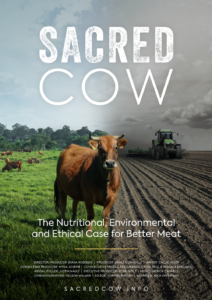
At our grocery stores and dinner tables, even the most thoughtful consumers are overwhelmed by the number of considerations to weigh when choosing what to eat—especially when it comes to meat. Guided by the noble principle of least harm, many responsible citizens resolve the ethical, environmental and nutritional conundrum by quitting meat entirely. But can a healthy, resilient and conscientious food system exist without animals?
Sacred Cow probes the fundamental moral, environmental and nutritional quandaries we face in raising and eating animals. In this project, we focus our lens on the largest and perhaps most maligned of farmed animals, the cow.
Food Lies
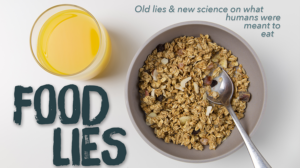
For years, we have been taught certain things about good vs. bad nutrition and a healthy diet. Using science and research, Food Lies tackles some of the most common misconceptions about food. The film shares why eating red meat isn’t bad for you, why fat doesn’t make you fat, and more. Looking at the evolution of humans, the film dissects the ideal human diet which includes well-sourced meat, eggs, vegetables, nuts and some fruit. Food Lies argues that animal protein is a key part of human survival.
This film is still being developed and funded. Pre-order here.
Goodbye Cows
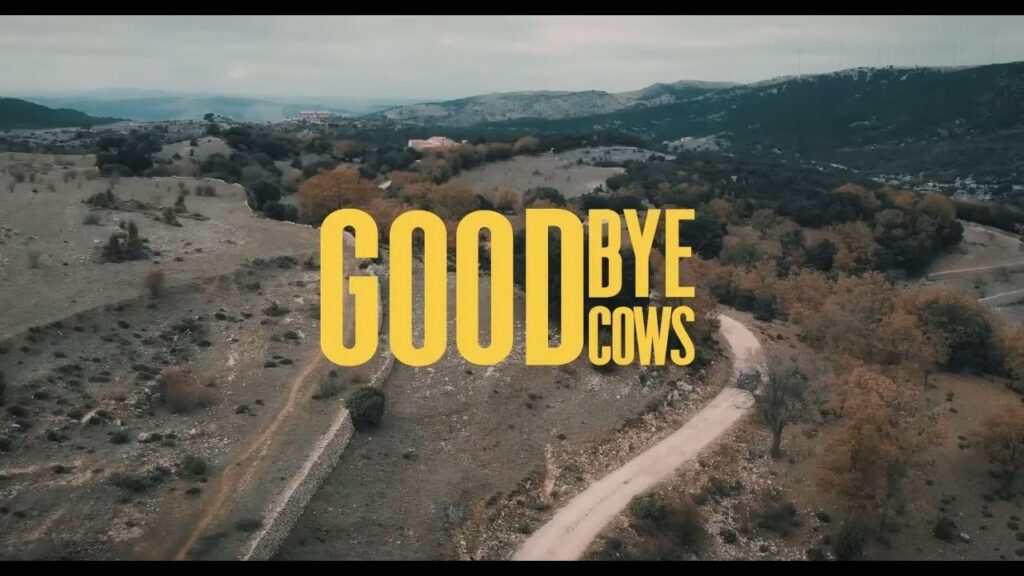
Almost a dozen of researchers, scientists and experts from Spanish and European universities reveal the future that awaits us if cattle farming were to disappear and why there is so much interest in this from happening.
Goodbye Cows demonstrates the global economic, social and environmental implications of completely removing cows from the food system. This documentary takes a peek into the future and simulates what life could be like in 2036 without cows. Watch it here.
Book recommendations
What Would Jesus Really Eat? The Biblical Case for Eating Meat
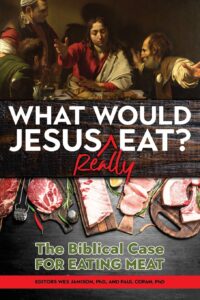
“What Would Jesus Really Eat? The Biblical Case for Eating Meat” looks at what the Bible has to say about using and eating animals from several different perspectives. The book, edited by Palm Beach Atlantic University’s Wes Jamison, PhD, and Paul Copan, PhD, tackles topics including the challenges to Christian meat-eating, human exceptionalism and humanity’s dominion over other living creatures.
In addition to chapters from Dr. Jamison and Copan, the book includes chapters from several different authors with unique perspectives and expertise in theology: Tom St. Antoine, PhD, Palm Beach Atlantic University; Timothy Hsiao, PhD, Grantham University; Walter Kaiser, PhD, evangelical Old Testament scholar; and Randy Spronk, a Minnesota hog farmer.
Purchase your copy here.
Bad Food Bible: How and Why to Eat Sinfully
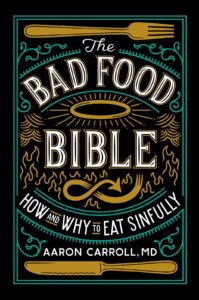
Physician and popular New York Times Upshot contributor Aaron Carroll mines the latest evidence to show that many “bad” ingredients actually aren’t unhealthy, and in some cases are essential to our well-being.
Advice about food can be confusing. There’s usually only one thing experts can agree on: some ingredients – often the most enjoyable ones – are bad for you, full stop. But as Aaron Carroll explains, these oversimplifications are both wrong and dangerous: if we stop consuming some of our most demonized ingredients altogether, it may actually hurt us.
Full counterintuitive lessons about food we hate to love, The Bad Food Bible is for anyone who wants to forge eating habits that are sensible, sustainable, and occasionally indulgent.
The Man Who Fed the World
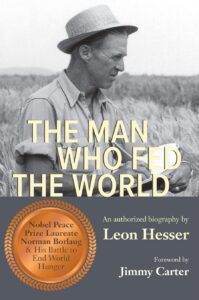
Norman Borlaug was the only person during the twentieth century who was awarded the Nobel Peace Prize for work in agriculture and food. There is no Nobel Food Prize, so the Nobel Committee chose Dr. Borlaug as the 1970 recipient of the Peace Prize based on his dramatic scientific breakthroughs and wheat production technology that relieved hunger in much of the world.
Dr. Borlaug was hailed as the person who saved the lives of more people–hundreds of millions–from starvation than any person in history. He earned the distinction as one of the 100 most influential individuals of the 20th century. His is an inspiring story; he went from an unpretentious Iowa farm boy to scientist-cum-humanist of world acclaim.
The Big Fat Surprise
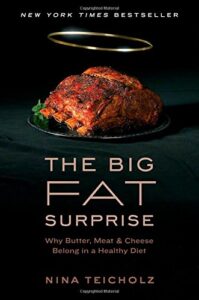
Investigative journalist Nina Teicholz reveals the unthinkable: that everything we thought we knew about dietary fats is wrong. She documents how the past sixty years of low-fat nutrition advice has amounted to a vast uncontrolled experiment on the entire population, with disastrous consequences for our health. For decades, we have been told that the best possible diet involves cutting back on fat, especially saturated fat, and that if we are not getting healthier or thinner it must be because we are not trying hard enough. But what if the low-fat diet is itself the problem? What if those exact foods we’ve been denying ourselves – the creamy cheeses, the sizzling steaks – are themselves the key to reversing the epidemics of obesity, diabetes, and heart disease?
The GMO Revolution
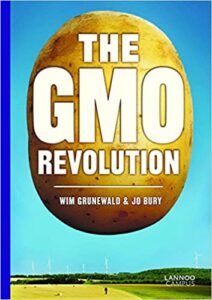
If tomatoes are susceptible to a certain fungus that sweet pepper is resistant to, the only way a farmer can protect his tomatoes at the moment is by spraying fungicides. Through GM technology the sweet pepper’s resistance to fungi can be transferred to tomatoes, without altering the other characteristics of the tomato cultivar. Result? The tomato plant is able to protect itself and fungicides no longer need to be sprayed. The GMO Revolution offers an honest and balanced insight into how GM crops could be useful in solving current and future issues facing agriculture: from potatoes that can protect themselves against late blight, to trees that can be used in biofuel production, to rice that contains more vitamins and wheat with a safe form of gluten.
The Great Plant-Based Con: Why Eating a Plants-Only Diet Won’t Improve Your Health or Save the Planet
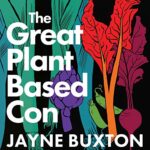
Plant-based is best for health, go vegan to help save the planet, eat less meat… Almost every day we are bombarded with the seemingly incontrovertible message that we must reduce our consumption of meat and dairy – or eliminate them from our diets altogether. But what if the pervasive message that the plant-based diet will improve our health and save the planet is misleading – or even false? What if removing animal foods from our diet is a serious threat to human health, and a red herring in the fight against climate change.
In “The Great Plant-Based Con,” Jayne Buxton demonstrates that each of these ‘what-ifs’ is, in fact, a reality. Drawing on the work of numerous health experts and researchers, she uncovers how the separate efforts of a constellation of individuals, companies and organizations are leading us down a dietary road that will have severe repercussions for our health and wellbeing, and for the future of the planet.
Food Truths from Farm to Table
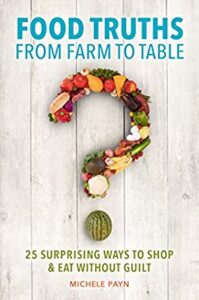
“Food Truths from Farm to Table” brings an unheard voice in the highly emotional food debate. Authored by Michele Payn, a leading farm and food advocate with an in-depth understanding of both sides of the plate, this intriguing book helps readers understand how food is really produced, answers food critics and points out how food marketing and labels are often half-truths or even “less-than-half truths.”
Readers will gain insights from a food expert who offers a viewpoint that stands in a stark contrast to the typical sensationalist and often negative perspective on fashionable food – accurate information that will help you to better trust the intentions and process in farming and ranching. The revelations in this book will simplify food shopping, reduce guilt about being a consumer and give you the freedom to enjoy your food again.
No More Food Fights!
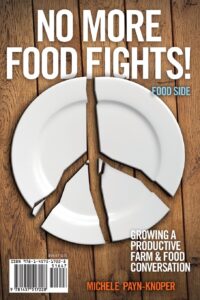
Food fights might seem entertaining, but there’s nothing funny about the fights taking place over food production. Resource limitations, animal welfare, and biotechnology are just a few issues cropping up to create confusion in the grocery store. Ultimately, both farmers and food buyers are making a personal choice, and author Michele Payn calls for decorum instead of mayhem in the conversation around farm and food.
In an effort to break stereotypes, the book describes farmers who don’t wear overalls but who do use technology in producing food and preserving the environment, dairy farmers who work on “cow comfort” and how hard farmers work on sustainability. On the other side, the book reminds farmers that only a tiny percentage of the population lives on a farm and urges farmers to tell their stories through social media and everyday conversation to correct mistaken beliefs about food production perpetuated by traditional media.
All posts are the opinion of the author and do not necessarily represent the views of the Animal Ag Alliance.







